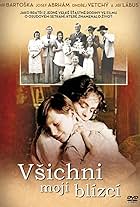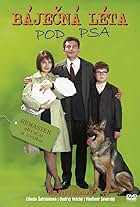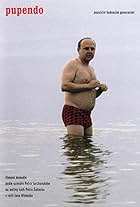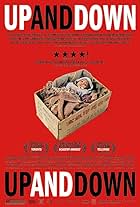I had this film on my "must see" list for the Ghent Film Festival 2010. I have always asked myself how I should act in situations like those described in the announcement. Being all alone, isolated from everyone, in the hands of the secret police, not knowing how long this will last, and with serious doubts whether they will let you go when they (eventually) got what they want. Of course, there are always people on their moral high horse, who will say that they never.... But I can't be sure for myself.
In the course of the story, some examples other than physical torture were mentioned to impose pressure on people, e.g. when the secret police promises to arrange some hard-to-get medicine for a sick relative. Such immoral bargains move the focus of the current situation away from yourself (how much and how long can I endure this) to a new level beyond yourself: maybe the damage from my confession is not so bad after all, in comparison the benefits that someone else could have from this.
There is a sub-plot within the film about a triangular relationship (1 man, 2 women) that existed in secret for one and a half year. Suddenly, the man decides it is time to throw it all in the open. He really thinks that everyone will benefit from the newly created situation. Of course, it works out differently from what he expected. Though I can only outguess the intentions of the film makers, I think this second story line is created to make the movie acceptable for those that are not so interested in moral issues. Such viewers may be moved instead by real world dilemma's they can imagine as "real" (experience in their own life). In other words, this sub-plot does not add to the story in general, but it may well suit its purpose in catching and holding the attention of the average viewer, hence a good thing from a compositional (or commercial?) point of view.
Initially I found it a nice touch to include the score of the "betrayal" aria from Handel's opera Ariodante. The same score re-surfaced several times throughout the film. Eventually, while the credits were shown, it was played again, now including a considerable part of the whole aria (voice part replaced by a oboe). At that time, when hearing the same notes for the 5th or 6th time, it was not so nice anymore. I think there is other suitable (betrayal) repertoire, even when only considering opera's from Handel. Most probably this is just me, and it does not hinder me from valuing this film with high marks.
All in all, this movie covered the subject very well, and more than satisfied my expectations as derived from the text in the announcement. I wonder how it would be experienced by someone who did not read the synopsis beforehand. From the beginning of the film it is not made clear where the planned interviews are heading, and how the other persons are related to the underlying subject. IT MIGHT have been better to have part of the speeches that we see at the end of the movie, or at least some newspaper headlines about it, to be included in the beginning. This is not a complaint, just a hint.



























